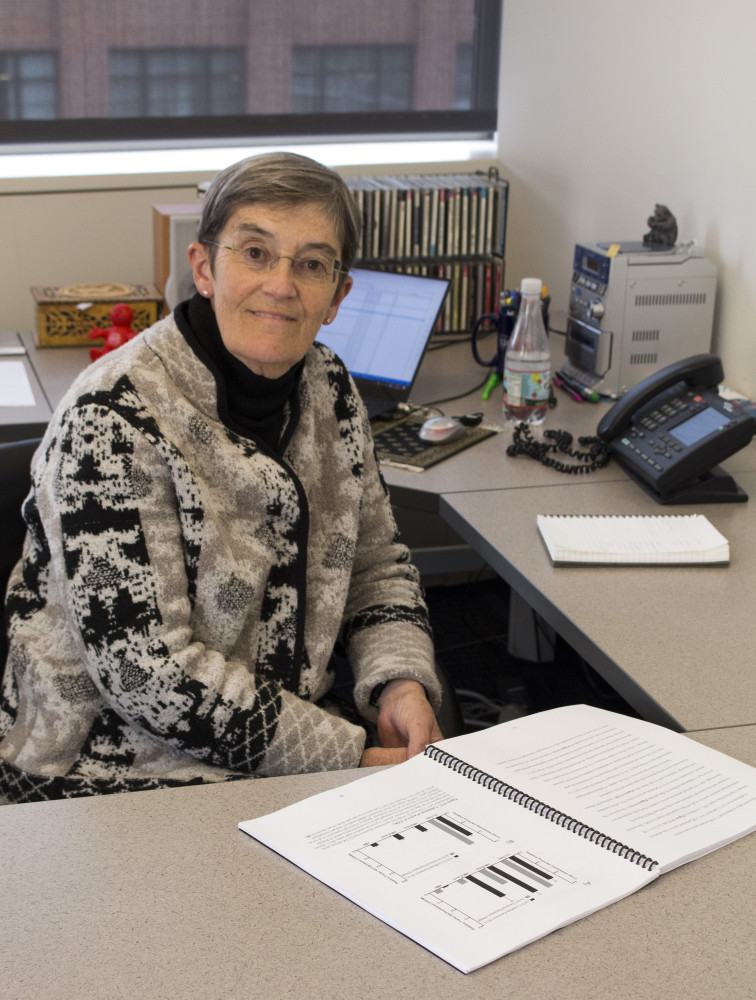Naomi Rosenberg, dean of the Sackler School of Biomedical Graduate Sciences, plans to retire at the end of the academic year, stepping down from her role as dean on June 30, according to Harris Berman, dean of the Tufts School of Medicine. Rosenberg has served as dean of the Sackler School since 2004, and she also serves as Vice Dean for Research at the School of Medicine.
According to Berman, the job of Sackler School Dean and Vice Dean for Research will be split into two positions to be filled by two candidates, and he hopes to have both in place by the end of the academic year. The search for candidates interested in the Sackler School Dean position is already underway.
Over the course of her career, Rosenberg has also been a part of national scientific and educational advisory boards and panels, according to Berman. She also received a National Institute of Health MERIT Award in 1983 and the Tufts Zucker Award for Excellence in Research in 1994, Berman said.
Rosenberg first came to Tufts in 1977 when she joined the faculty of the School of Medicine and was one of the first faculty members of the Sackler School, founded in 1980. According to a letter written by Berman, Rosenberg pioneered the first tractable model that studies the development of leukemia in tissue culture. 
Rosenberg explained when she first came to Tufts her goal was to focus on her research. However, she also developed an interest in teaching.
“Through [research work], I became involved with training graduate students in my lab and found that I enjoyed that a great deal, seeing them really mature in the way they approached science,” she said.
During her time at Tufts prior to becoming dean, Rosenberg became more involved in graduate education, serving as a student advocate and as director of one of the graduate programs involving genetics research, she said. Her experience teaching 29 graduate students both helped and informed her path as the dean of the Sackler School.
“Training Ph.D. students was really a much bigger part of my career than I anticipated when I first became a faculty member, but it was something I truly loved," Rosenberg said. "I think it did prepare me well to become the dean because I became very familiar with graduate education."
According to Rosenberg, her position as dean allowed her to have a larger role in graduate education than she was able to have in an individual lab.
“The role of dean [is] one where I could have some influence over a broader range of students and their training,” she said.
In particular, Rosenberg noted that she helped strengthen some of the school’s graduate programs by providing access to federal training grants. She said that one of her major roles was to ensure that graduate students not only received advanced training, but also were prepared for the next steps in their own careers, whether they be in academic research or in other fields.
A major part of addressing and serving student needs was the implementation of a robust diversity program that will lead to a more diverse biomedical workforce, according to Rosenberg.
“[The diversity program] is actually something I feel really strongly about,” she said. “I feel that doing everything we can to have a campus environment that reflects the environment of our country and the population of our country is really important."
According to Rosenberg, the Sackler School faculty has also strengthened alliances with local institutions that have strong minority representation among their student body and has provided research opportunities both during the summer and academic year.
Additionally, Rosenberg founded a fellowship with her husband to help fund research efforts by distinguished students.Rosenberg explained that she and her husband founded the fellowship due to a deep commitment to and respect for the education that was instilled in them by their families.
Rosenberg hopes for the fellowship to act as part of her legacy at the Sackler School.
“Funding for students is a challenge at all levels, including Ph.D. training, and we were ... very excited to be able to make a contribution in that regard. Hopefully ... it will benefit students at the Sackler School long after I’m gone,” she said.
Rosenberg credited many of her accomplishments to the supportive faculty and staff she worked with, including Associate Dean of the Sackler School Kathryn Lange and Berman.
Lange praised Rosenberg as a hard worker, and as a caring and supportive person.
“I would say that it's probably the most satisfying working relationship I’ve had, and I’ve worked in many places and with wonderful people," Lange said. "We started out very different, and what we learned over the years was how to use those different skills to compliment one another and to move the school forward."
Berman agreed, saying that Rosenberg may be quiet in nature, but she works very hard and has been important to the School of Medicine and the Sackler School.
“For me, Naomi has been a trusted advisor, and I have relied on her guidance and understanding of basic science research to advance the medical school’s mission," Berman said. "We’ve become good friends and partners in running these organizations, and I’ll really miss her."
More from The Tufts Daily





